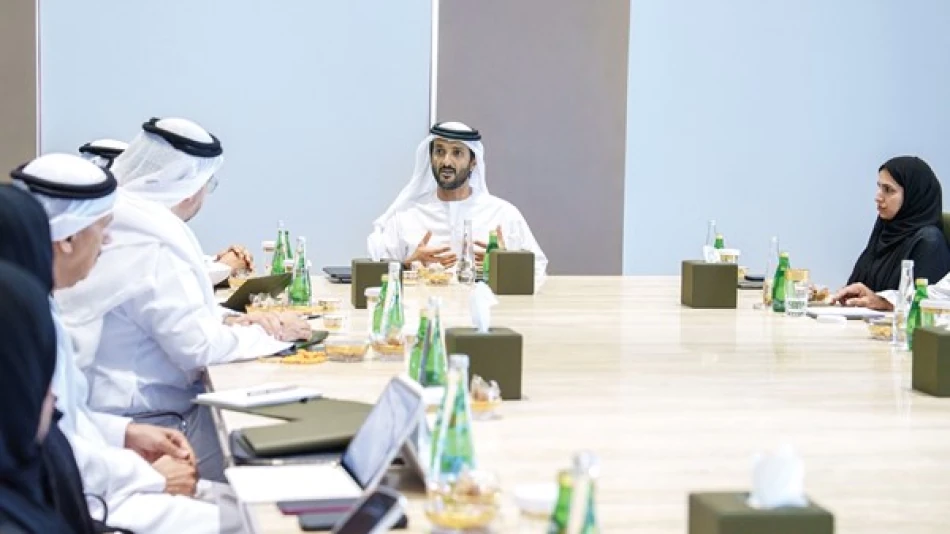
UAE's Visionary Entrepreneurial Capital: Building a Globally Competitive Economy
UAE Doubles Down on Global Startup Ambitions With Bold 2-Million Company Target
The UAE is making a serious play to become the world's entrepreneurship capital, with officials projecting the country will host over 2 million companies by 2030 — nearly doubling its current 1.2 million registered businesses. This ambitious target comes as part of a new national campaign that brings together more than 50 government and private entities, backed by data showing the Emirates already leads global entrepreneurship rankings for the fourth straight year.
The Numbers Behind the Ambition
The UAE's confidence isn't just talk. According to Economy and Tourism Minister Abdullah bin Touq, the country has already hit its original 2031 target of 1.2 million companies five years early. Now they're pushing the goalpost further out.
Current Market Reality
Small and medium enterprises make up 95% of all UAE companies and contribute 63.5% to the non-oil GDP. That's a massive chunk of economic activity coming from smaller players, not just the oil giants everyone thinks about.
The Global Entrepreneurship Monitor ranked the UAE first globally in 11 out of 13 key indicators among high-income countries. Out of 56 economies studied, the Emirates came out on top as the best place for entrepreneurship and SMEs.
Why This Actually Matters for Global Business
The Unicorn Factor
Here's where it gets interesting for investors: Of the 7 Arab startups that reached unicorn status (valued at over $1 billion), 5 launched from the UAE. The country currently has 5-6 unicorns and wants to hit at least 10 by 2030.
That's not just a nice round number — it signals the UAE is building the infrastructure to create billion-dollar companies, not just attract them.
Strategic Sector Focus
The campaign targets five specific sectors: - Food manufacturing and processing - Tourism and hospitality (already 13% of GDP) - Financial services and fintech - Space economy and systems - Data analytics and artificial intelligence
This isn't scattershot development. These sectors align with global trends and the UAE's geographic advantages as a trade hub.
What Makes the UAE Different
Speed and Ownership
You can register a company in the UAE within days thanks to digital processes. More importantly, foreign investors can own 100% of their companies in most sectors — something that's still restricted in many emerging markets.
The country also leads in intellectual property registration speed, which matters when you're trying to build tech companies that depend on protecting their innovations.
Infrastructure Reality Check
The UAE has world-class ports and airports that actually connect to global markets. This isn't just marketing speak — Dubai and Abu Dhabi are genuine logistics hubs that can get products and people anywhere quickly.
The Bigger Economic Picture
Diversification in Action
The UAE expects its non-oil economy to grow over 6% this year. That's solid growth for any developed economy, and it shows the diversification strategy is working.
The government has pumped 8.7 billion dirhams (about $2.4 billion) into innovation and SME growth through its "Projects of the 50" initiatives. That's real money backing up the rhetoric.
Regional Competition
This push comes as other Gulf states like Saudi Arabia and Qatar are also trying to diversify their economies away from oil. The UAE's advantage is that it started earlier and has built actual business ecosystems, not just announced plans.
Singapore and Hong Kong remain the gold standard for business-friendly environments in Asia, but the UAE is positioning itself as the equivalent for the Middle East, Africa, and South Asia corridor.
What Could Go Wrong
The 2030 timeline is aggressive. Doubling company registrations in six years means sustaining growth rates that might not hold up during global economic downturns.
And there's a difference between having 2 million registered companies and having 2 million thriving businesses. Company formation is easier than company success.
The Execution Challenge
The UAE Entrepreneurship Council includes representatives from multiple ministries and development funds. That's either great coordination or a recipe for bureaucratic confusion. The real test will be whether all these entities can actually work together when entrepreneurs need quick decisions.
But here's the thing — the UAE has a track record of executing on ambitious economic plans. They've built Dubai and Abu Dhabi into genuine international business centers over the past two decades. That gives them credibility that many other countries lack when they announce similar initiatives.
The campaign represents a clear bet that the future economy will be driven by smaller, more agile companies rather than massive conglomerates. For a country that built its wealth on oil exports, that's a significant strategic shift — and one that other resource-rich nations will be watching closely.
Most Viewed News

 Layla Al Mansoori
Layla Al Mansoori






